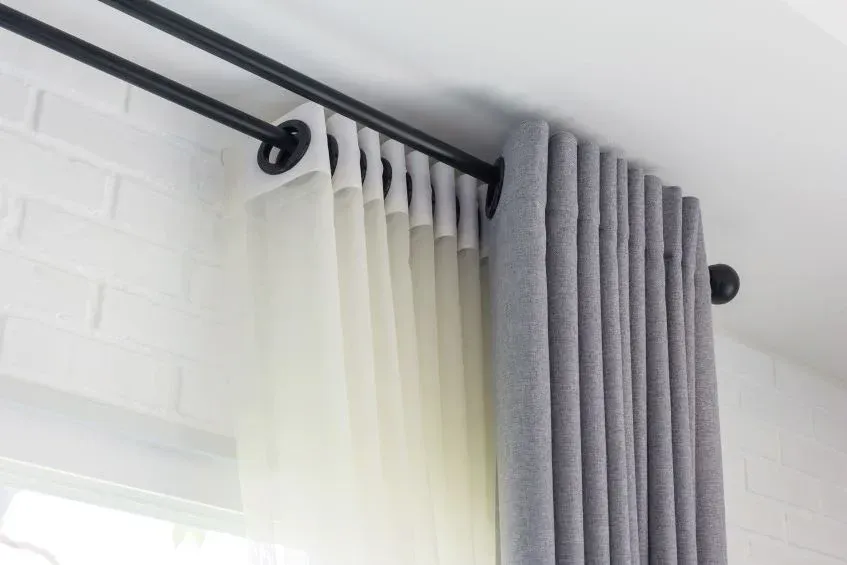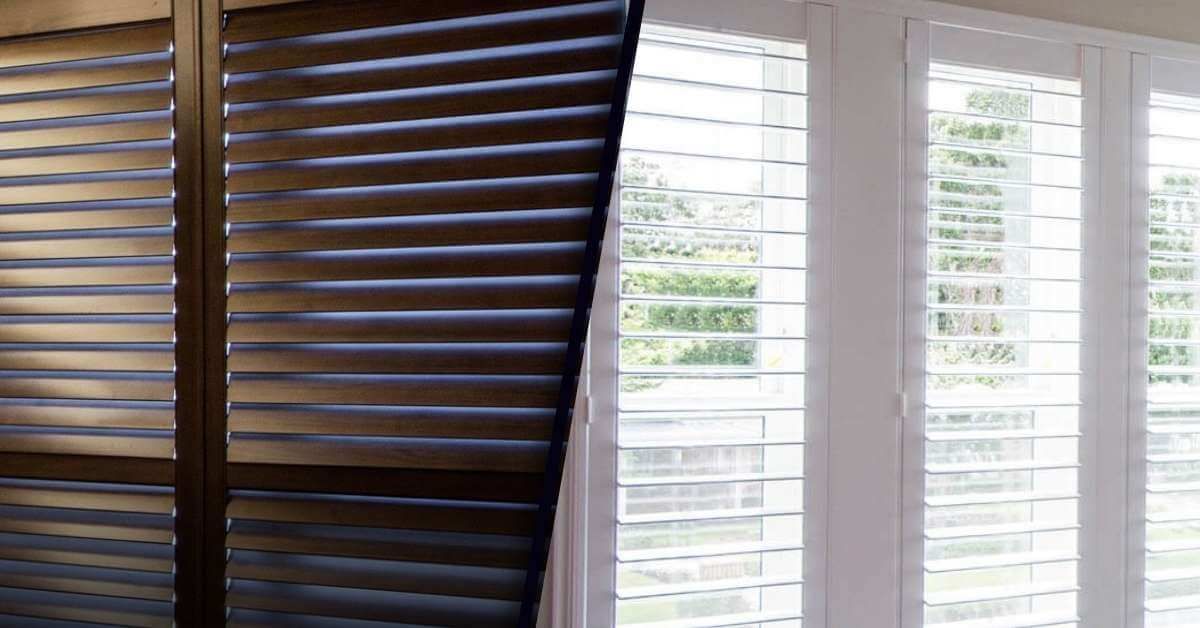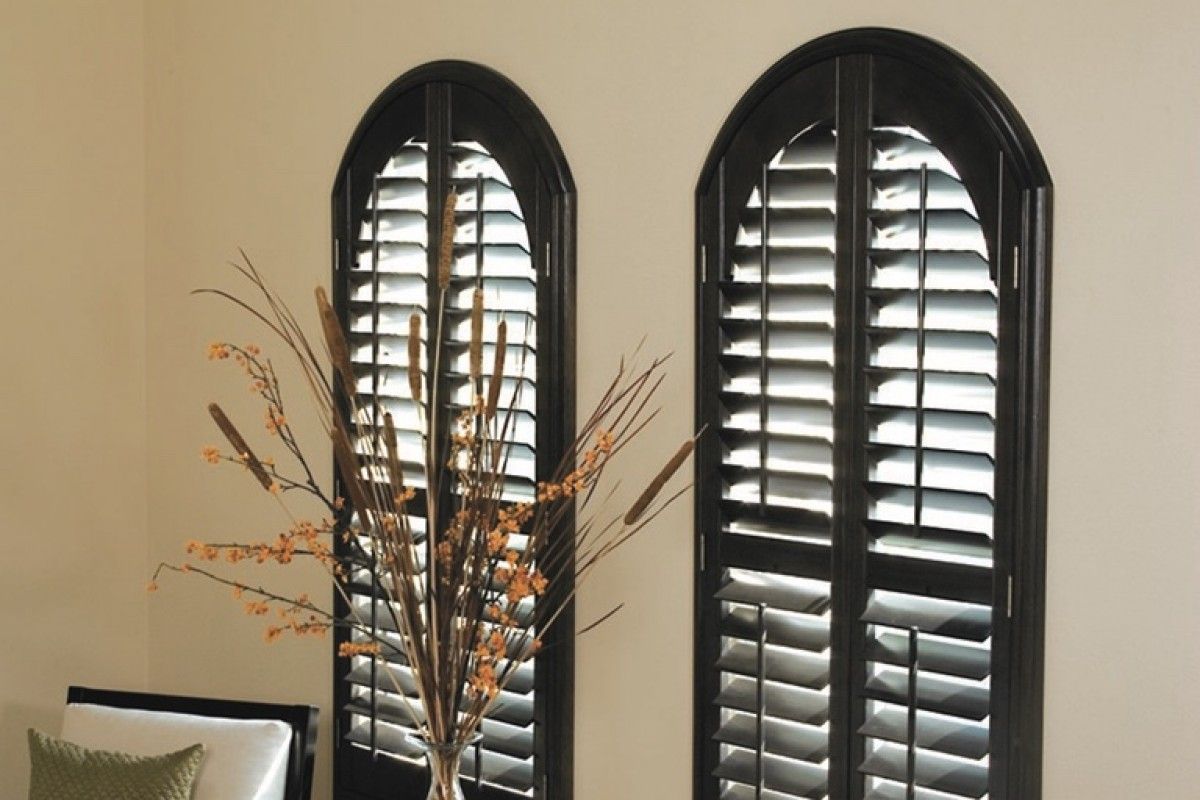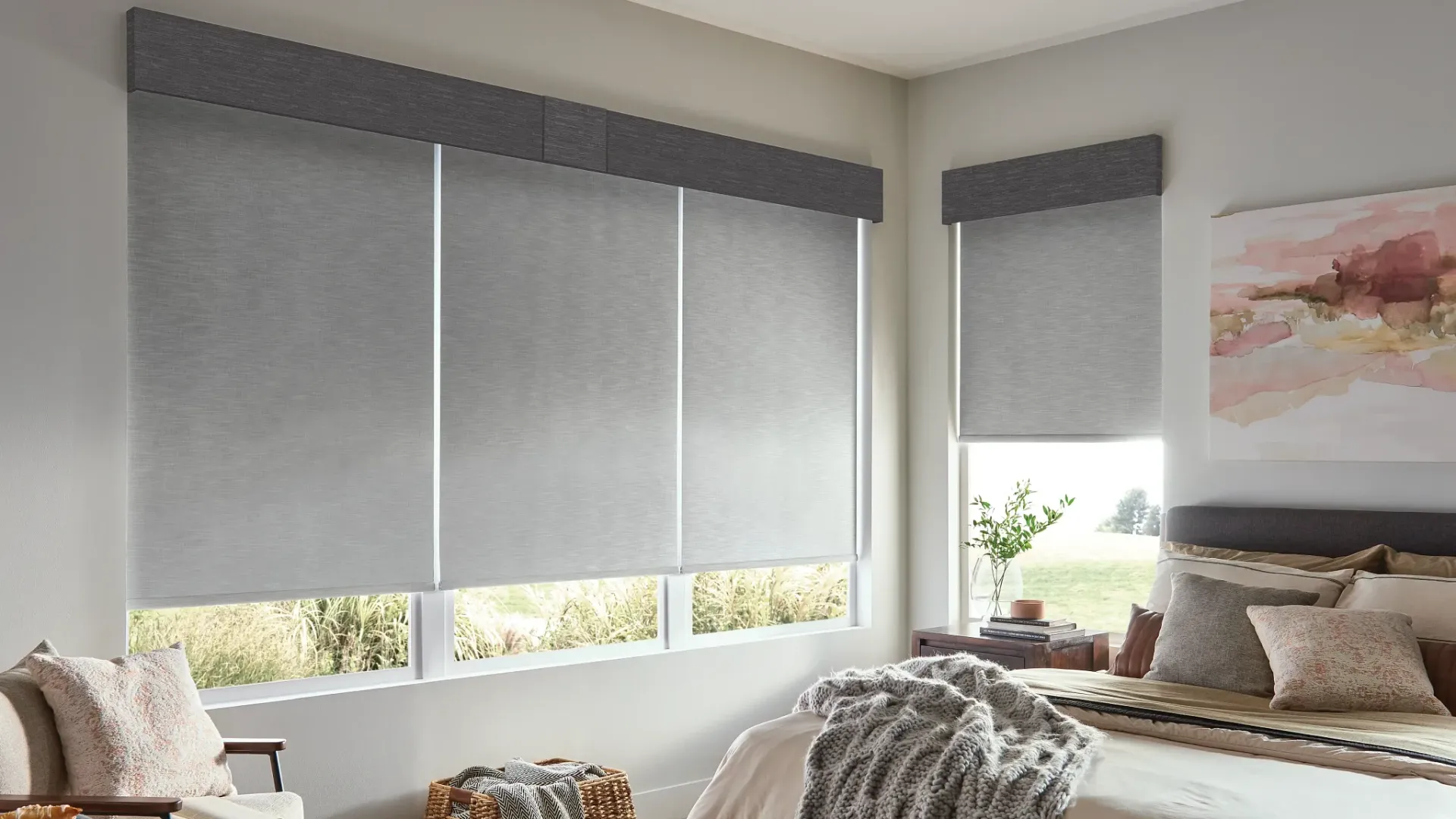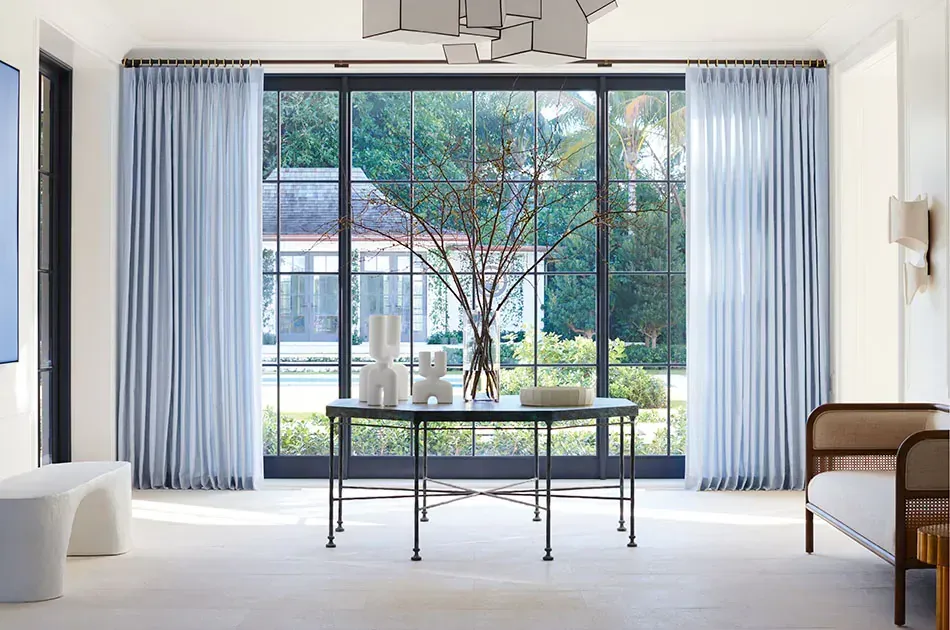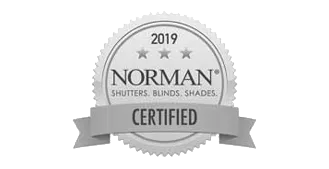LOVE IS BLINDS
Can Window Blinds and Shades Improve Indoor Air Quality?
Indoor air quality (IAQ) has become a crucial concern for homeowners and businesses alike. With studies linking poor air quality to health issues such as allergies, asthma, and respiratory problems, people are searching for effective ways to create healthier living and working spaces. Among the potential solutions, window blinds and shades might not immediately come to mind. But can they really play a role in improving indoor air quality?
The Relationship Between Indoor Air Quality and Window Treatments
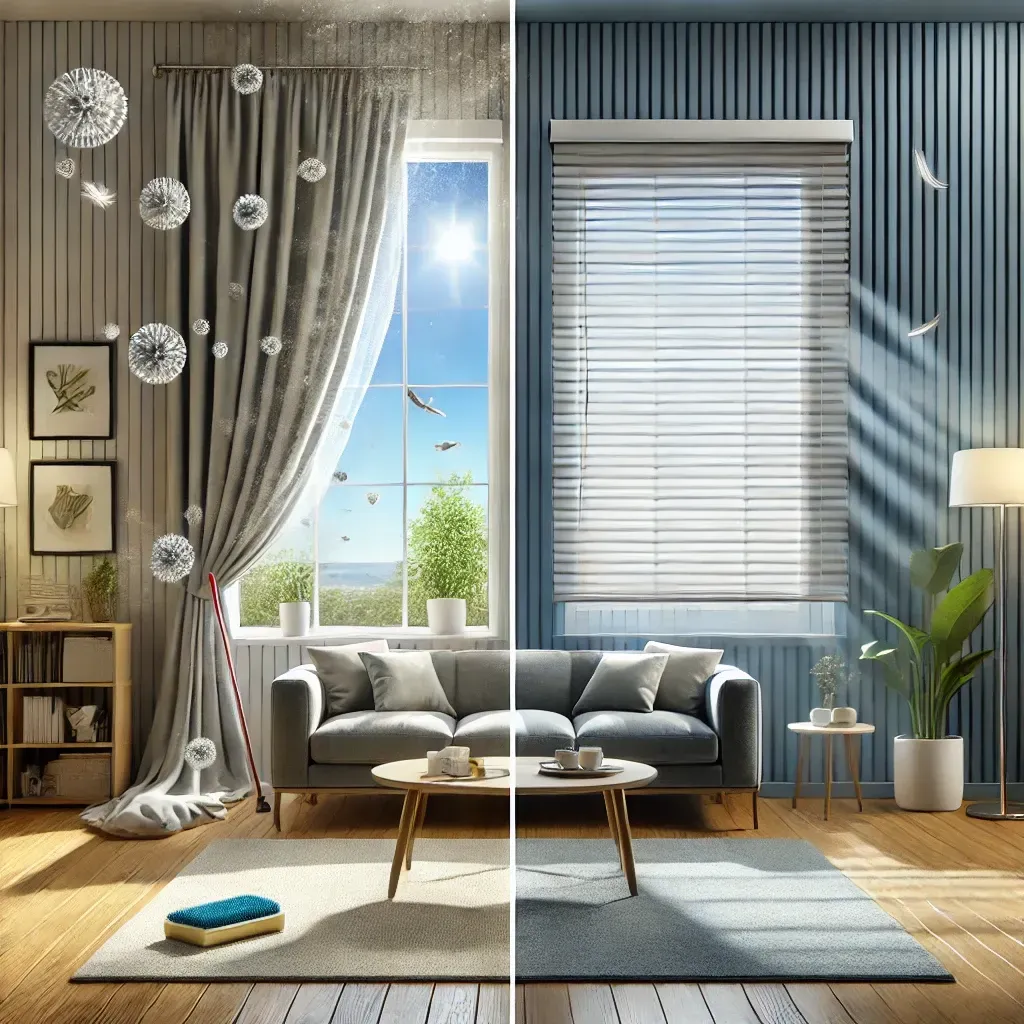
Indoor air quality is directly influenced by the materials and furnishings in a home, including window treatments. Traditional window coverings like heavy curtains can act as magnets for dust, allergens, and pollutants, potentially contributing to poor air quality. But how do blinds and shades compare?
Dust and Allergen Accumulation: While curtains tend to trap dust, window blinds and shades, depending on their material, are less prone to such issues. Certain blinds and shades are designed with dust-resistant materials, making them easier to clean and maintain.
Material and Fabric Choices: The type of material used for window coverings plays a significant role. Blinds made of treated wood, PVC, or other smooth surfaces tend to repel dust, while shades crafted from hypoallergenic fabrics help minimize allergen buildup.
Airflow Regulation: Cellular shades, for example, provide insulation benefits, helping regulate airflow within a space. This regulation can contribute to a healthier environment by preventing dust from circulating excessively.
How Window Blinds Help Improve Indoor Air Quality
Window blinds offer several features that can actively contribute to better indoor air quality:
Dust-Repellent Materials

Certain blinds are coated with anti-static or dust-repellent treatments, reducing the accumulation of dust and other airborne particles. Materials like treated wood and PVC are particularly effective in this regard.
Ease of Cleaning

Blinds are generally easier to clean than curtains. Regular wiping or vacuuming of slatted blinds removes dust and allergens, maintaining a healthier environment.
Anti-Microbial Coatings
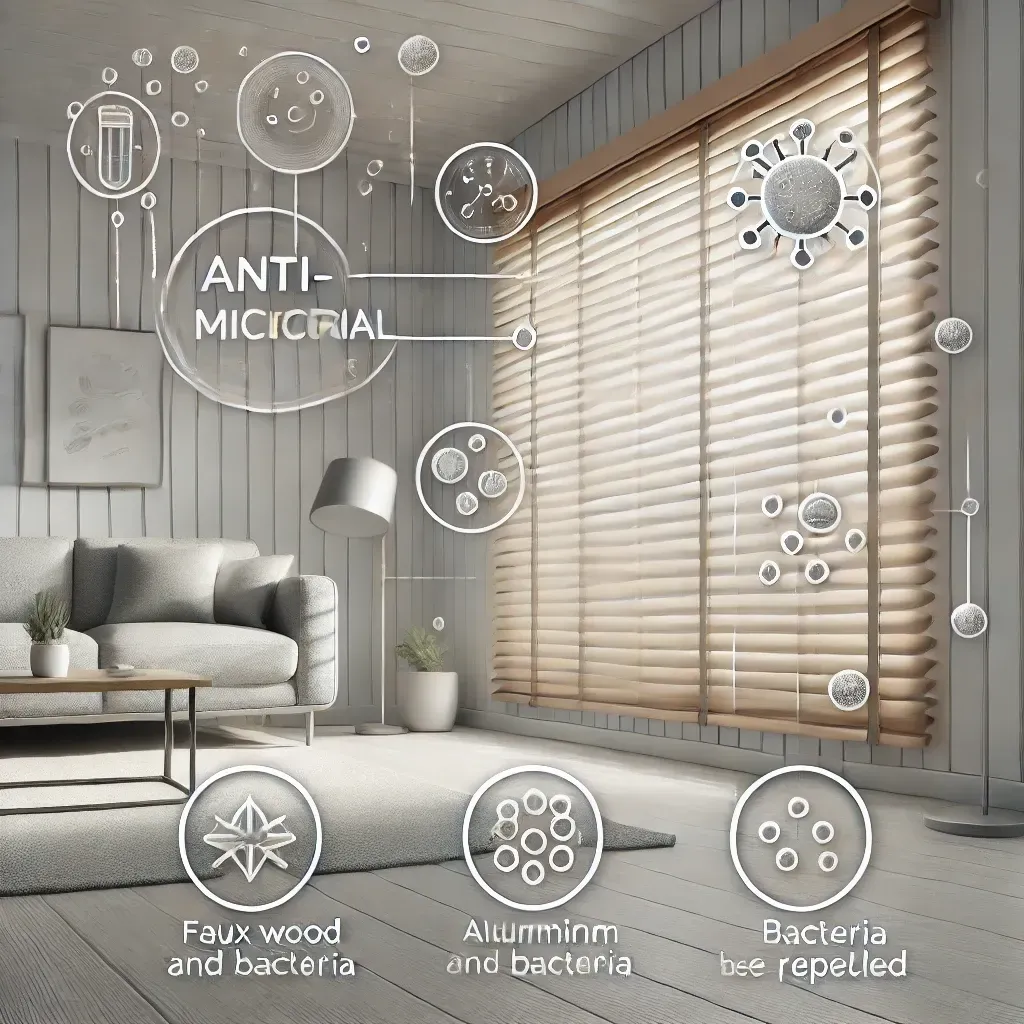
Some modern blinds come with anti-microbial finishes, which inhibit the growth of mold, mildew, and bacteria. These features are especially beneficial in humid climates where mold growth can compromise air quality.
Examples of Blinds for Better Air Quality:
- Faux Wood Blinds: Durable and easy to clean, faux wood blinds are ideal for reducing allergens.
- Aluminum Blinds: Lightweight and dust-resistant, these are another low-maintenance option.
Benefits of Window Shades for Better Air Quality
Window shades also offer unique advantages for improving indoor air quality:
Hypoallergenic Fabrics
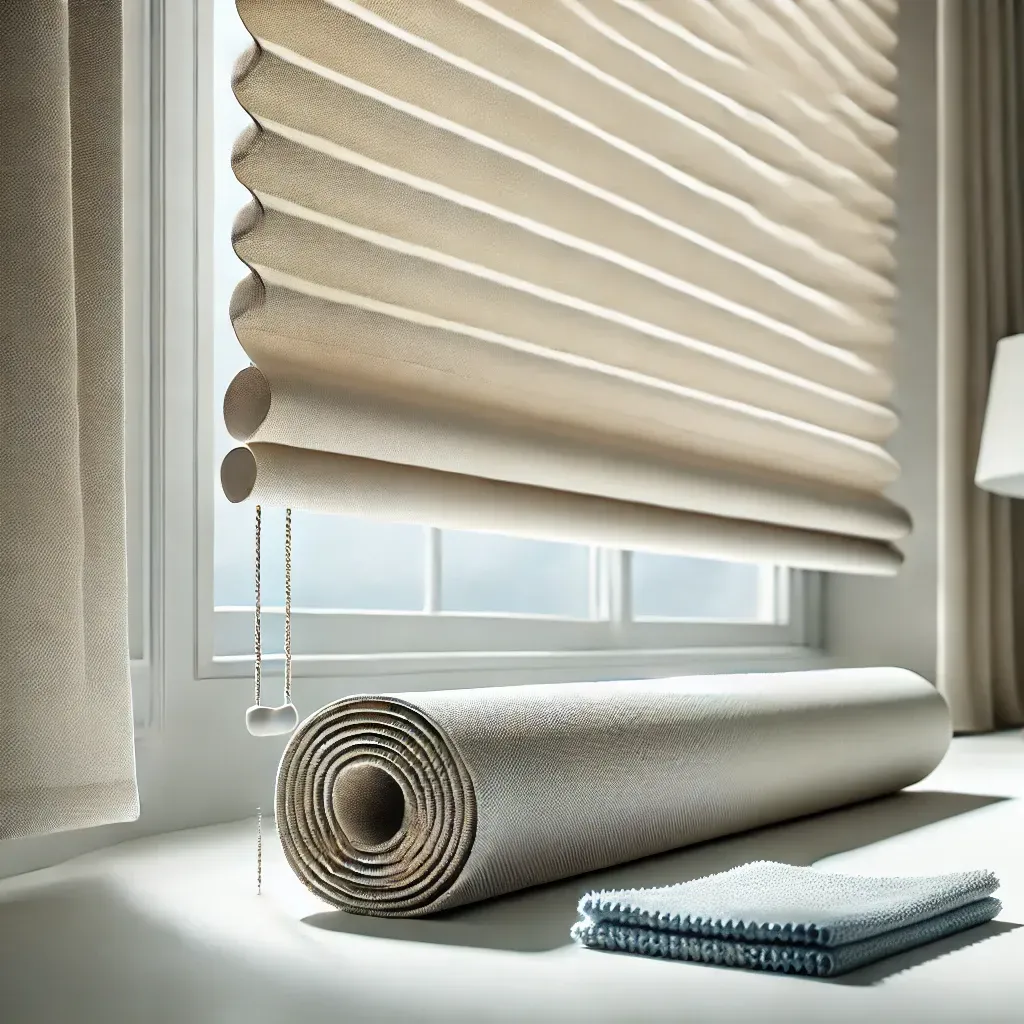
Roller shades and cellular shades made with hypoallergenic materials are excellent for households with allergy sufferers. These fabrics resist trapping dust and are often easy to wipe down. If you're considering vertical blinds, check out Best Fabric for Vertical Blinds to find materials that enhance both style and air quality.
Dust Prevention

Blackout shades, with their tightly woven fabrics, can prevent dust accumulation. They also block out pollutants from entering through windows when closed.
Insulation Benefits
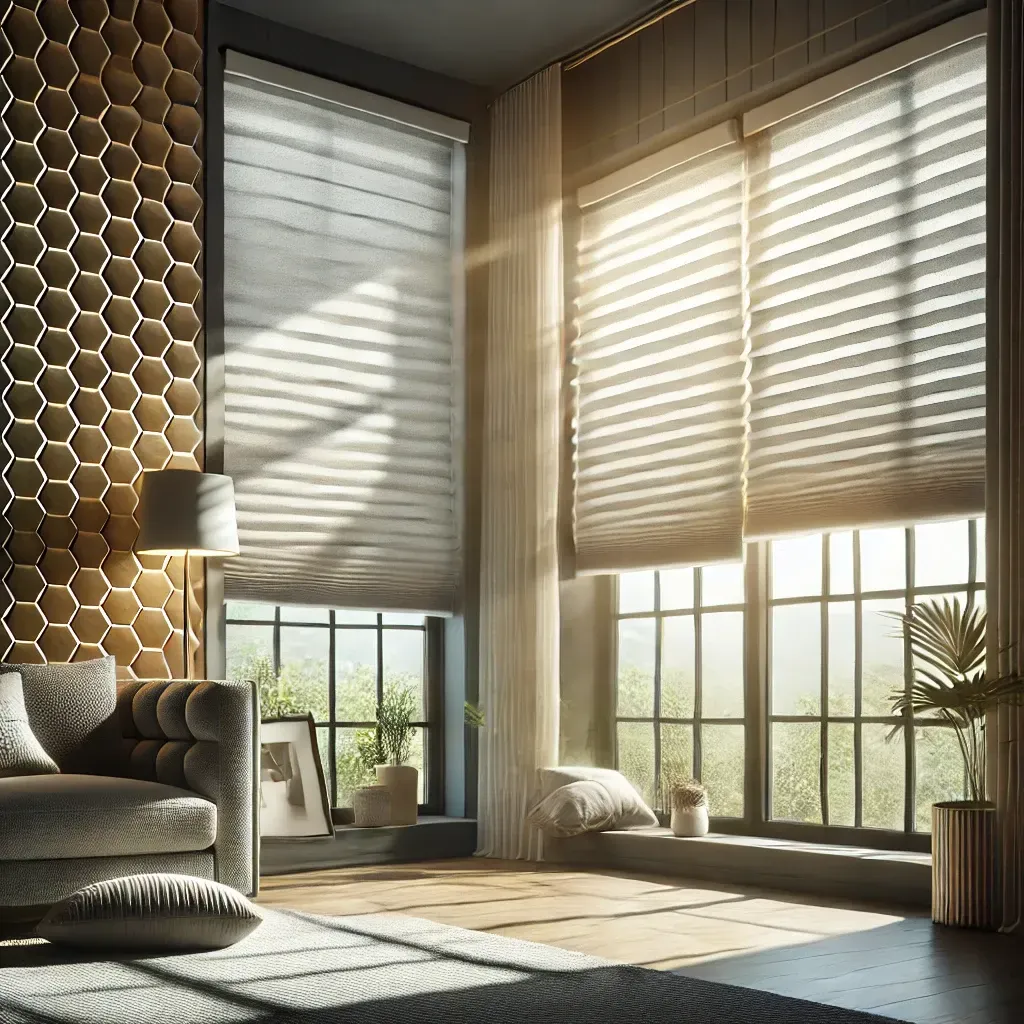
Cellular shades—often called honeycomb shades—not only regulate indoor temperatures but also help maintain cleaner air by reducing drafts that can stir up dust and allergens.
Tips for Choosing Blinds and Shades to Improve Air Quality

Selecting the right window treatments can make a noticeable difference in air quality. Here’s how to make informed choices:
- Opt for Hypoallergenic Materials: Look for blinds and shades labeled hypoallergenic or designed to minimize dust accumulation.
- Choose VOC-Free Options: Many traditional window coverings release volatile organic compounds (VOCs), which can degrade air quality. Select VOC-free blinds and shades.
- Look for Certifications: Products certified by GREENGUARD or OEKO-TEX ensure that they meet stringent standards for low chemical emissions.
- Consider Eco-Friendly Options: Sustainable materials like bamboo or recycled fabrics are often better for air quality and the environment.
- Choosing Weather-Resistant Blinds: Weather-resistant blinds not only withstand various climates but also maintain durability and low maintenance, contributing to a healthier indoor environment.
Maintenance Tips to Maximize Air Quality Benefits
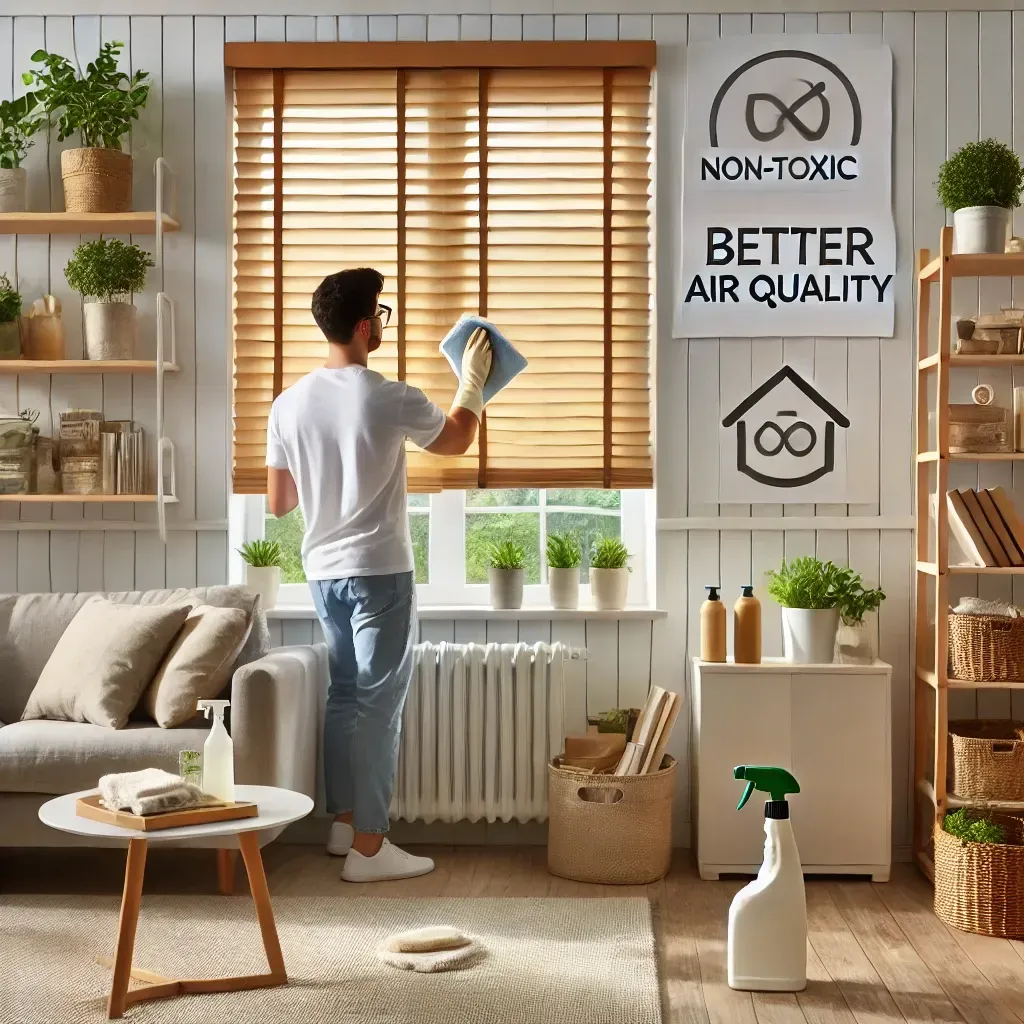
Proper maintenance is essential to ensure your window treatments continue to contribute to a healthier home environment:
- Regular Cleaning: Dust your blinds weekly with a microfiber cloth or vacuum using a brush attachment. For shades, wipe them with a damp cloth as needed.
- Avoid Toxic Cleaners: Stick to non-toxic, natural cleaning products to prevent chemical residues that could affect air quality.
- Inspect for Mold and Mildew: Check window treatments in humid areas regularly and clean them promptly if mold appears.
Frequently Asked Questions
Can blinds and shades filter out pollutants?
While blinds and shades don’t act as air purifiers, certain materials can reduce dust and allergens in a room, contributing to a cleaner environment.
Are certain materials better for air quality?
Yes, materials like PVC, treated wood, and hypoallergenic fabrics are better for reducing dust and allergens compared to heavy, untreated fabrics.
How often should I clean my blinds to maintain air quality?
For optimal results, clean your blinds weekly and deep clean them monthly.
Conclusion
Window blinds and shades can indeed play a meaningful role in improving indoor air quality. By choosing the right materials, maintaining them properly, and integrating them into a comprehensive strategy for a healthier home, you can create a space that feels fresher and supports better health. Consider investing in air-quality-friendly window treatments to enhance both the aesthetics and functionality of your living or working environment. If premium options are out of budget, explore
Window Shades Alternatives that still support healthier indoor air without compromising on style or performance.
Need to setup a Repair Appointment?

